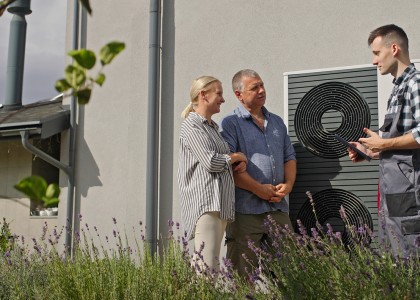Later this week, athletes proudly wearing their countries’ colors will fill the winter sports arenas of PyeongChang, South Korea, as they compete in the 2018 Olympic Winter Games. But one color — green — will be present throughout the games, thanks to the PyeongChang Organizing Committee’s (POCOG) sustainability and energy efficiency efforts.
These efforts — including a high-speed railway, electric vehicles, and efficient buildings — explain why the Nigerian women’s bobsled team won’t be the only team making history at this Olympics. PyeongChang 2018 is the first Winter Olympic Games to receive the ISO 20121 certification, a sustainability standard for entire events. It is only the third Olympic Games to be certified, along with the London 2012 and Rio 2016 Summer Olympics.
New railway saves energy
The South Korean government and its citizens have long prioritized public transportation. Seoul’s subway is the third-busiest metro system in the world — touted as among the best in the world, as well. So it’s no surprise that public transit is a key part of the POCOG’s sustainability plan for the Winter Games.
With both the Games and overall accessibility in mind, the Wonju-Gangneung High-Speed Railway was constructed to connect the Incheon International Airport, located outside of Seoul, to PyeongChang and nearby Gangneung. The railway is energy efficient, using less energy and boasting a carbon footprint one-eighth that of gasoline vehicles. It is also time efficient, cutting travel time between Seoul and Gangneung to less than two hours, as compared to six hours on the Mugunghwa train. In fact, the newly constructed railway is expected to prevent more than 6,000 metric tons of greenhouse gas emissions if 420,000 visitors choose the express railway over personal vehicles.
Locally, electric vehicles will be used to transport participants and visitors, while also cutting energy use and carbon emissions. The Korea Electric Power Corporation agreed to provide 150 electric vehicles and 24 additional charging stations to be used during the Games.
International collaboration brings comfort and efficiency
Just as the Olympic Games bring together athletes and visitors from around the world, POCOG is working with international partners, including the Dow Chemical Company, to make its sustainability efforts a success.
Using energy-efficient materials, POCOG constructed a variety of new buildings needed for the Games. Many of the buildings utilize cutting-edge materials, such as Dow’s advanced polyisocyanurate panels, which insulate facilities ranging from the Modular Houses that will accommodate event drivers, to the Olympic Plaza and the International Broadcast Centre. In all those buildings, the panels will optimize energy use and cut heating costs by keeping warm air in, and cold air and moisture out.
In some instances, however, insulation will increase energy efficiency by keeping a building cold. The Olympic Sliding Centre uses a polyurethane spray foam to ensure the luge, bobsled, and skeleton track stays frozen. The venue also has a variety of other energy-efficient features, including LED track lighting, that enabled it to be one of six G-SEED (Green Standard for Energy and Environmental Design) Certified facilities built for the Games.
Going for the gold (or green)
The Olympic Committee’s measures reflect South Korea’s commitment to sustainability and energy efficiency. In ACEEE’s 2016 International Energy Efficiency Scorecard, South Korea tied with the United States for the 8th spot. The nation also ranked 6th in the transportation section, setting it apart from the United States, where transportation is currently the largest source of carbon dioxide emissions. On the other hand, South Korea ranked 13th in the buildings section, so it is good to see POCOG going the extra mile on building efficiency.
We at ACEEE welcome the efficiency efforts of the Games and the country as a whole. We will be updating our rankings of South Korea and other countries with the June release of our 2018 International Energy Efficiency Scorecard. The scorecard will be grist for our upcoming International Symposium. Stay tuned for details and have fun watching the Olympics.




